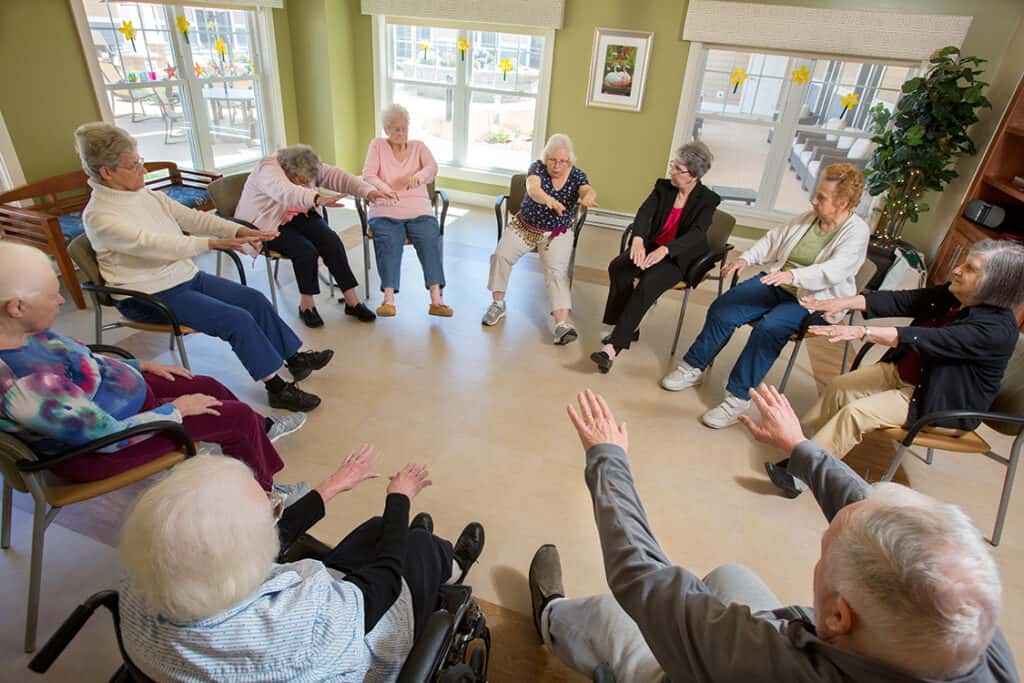Learn about new Memory Care techniques for cognitive well-being.
The Role of Assisted Residing In Providing Specialized Take Care Of Mental Deterioration Sufferers
The arrangement of specialized care for dementia clients within assisted living centers is increasingly identified as an important element of reliable dementia monitoring. These environments are developed to attend to the unique cognitive and emotional difficulties encountered by individuals with dementia, offering tailored assistance that promotes security and health.
Understanding Mental Deterioration Care Demands
Recognizing the care requirements of people with mental deterioration is vital for providing effective assistance and enhancing their lifestyle. Dementia is a modern neurological problem that impacts cognitive functions such as memory, reasoning, and interaction. Individuals with mental deterioration commonly need support with day-to-day tasks, personalized treatment plans, and emotional support.
Effective mental deterioration care involves acknowledging the special difficulties dealt with by each individual. This includes comprehending the phases of mental deterioration, which can range from moderate cognitive problems to sophisticated stages requiring comprehensive help. Treatment requires might incorporate support in taking care of everyday routines, medicine adherence, and preserving social communications to avoid isolation.
Furthermore, sensory stimulation and familiar atmospheres can substantially enhance the well-being of people with dementia. Caretakers should be trained to recognize behavioral changes and use methods tailored per individual's preferences and previous experiences. Strategies such as validation therapy and memory can help communicate successfully and promote a complacency.
Ultimately, effectively attending to the treatment demands of individuals with dementia needs a caring approach, recurring training for caretakers, and a commitment to maintaining self-respect and respect throughout the caregiving process.
Benefits of Assisted Living

Assisted living advertises social interaction amongst locals, cultivating a feeling of community and belonging. Engaging with peers can reduce sensations of seclusion, which are common in those living with dementia.
In enhancement, several assisted living facilities offer aid with daily activities, such as medicine monitoring, bathing, and dish preparation. This assistance allows residents to preserve their self-reliance while ensuring their wellness and health are focused on. Eventually, assisted living functions as a valuable resource, stabilizing care and freedom for people with dementia and their families.

Specialized Programs and Tasks
(Dementia Care Charlotte)Identifying the special needs of individuals with mental deterioration, many assisted living facilities carry out specific programs and tasks made to improve cognitive function and promote overall wellness. These programs commonly consist of cognitive stimulation tasks that engage citizens in memory video games, challenges, and reminiscence therapy, which urges the sharing of personal tales and previous experiences.
In addition, art and music therapy play considerable duties in cultivating creativity and psychological expression (Memory Care). Involving homeowners in paint, crafting, or music sessions can offer healing advantages, helping to lower anxiety and enhance mood. Physical tasks, such as gentle exercises and dancing sessions, are also vital, as they promote movement and physical health and wellness while encouraging social interaction amongst locals
Structured everyday routines are commonly developed to offer a feeling of stability and predictability for individuals with her explanation mental deterioration. These regimens can consist of scheduled meal times, group tasks, and customized care plans that accommodate specific rate of interests and capabilities. By developing an improving environment filled with tailored tasks, aided living centers not only boost the lifestyle for mental deterioration people however likewise foster a sense of neighborhood and belonging.
Educated Team and Support
(Dementia Care Charlotte)In aided living facilities, the presence of skilled staff is vital for supplying efficient support to individuals with dementia. These professionals have specialized expertise and abilities to deal with the distinct needs of citizens, ensuring their security, comfort, and well-being. Personnel get training in dementia treatment, that includes understanding the progression of the disease, identifying behavior changes, and employing reliable communication strategies.
Furthermore, skilled staff are furnished to carry out personalized treatment plans customized per homeowner's choices and capacities. This individualized method fosters a feeling of freedom and dignity, permitting homeowners to participate in purposeful activities that enhance their top quality of life. The personnel additionally play an essential duty in monitoring health and wellness, promptly determining any changes in problem that might need medical interest.
Along with guide care, skilled team provide emotional assistance to homeowners, assisting to minimize feelings of confusion and stress and anxiety that often go along with mental deterioration. Their thoughtful strategy creates a nurturing atmosphere where residents really feel valued and understood - Assisted Living. Eventually, the proficiency and dedication of trained team are crucial in delivering extensive treatment that fulfills the intricate demands of individuals living with mental deterioration in assisted living settings
Household Participation and Resources
Family participation plays a significant duty in the treatment of people with mental deterioration in nursing home. Involving relative in the treatment procedure not just enhances the psychological wellness of the local however also fosters a joint setting where care plans can be customized to individual demands. Households can supply beneficial insights into the choices, background, and habits of their loved ones, which can educate caregivers and result in even more individualized care approaches.
Additionally, assisted living facilities commonly provide sources for family members, such as assistance groups and instructional workshops. These sources can assist families recognize mental deterioration, boost communication strategies, and establish coping systems. Participation in these programs can equip member of the family, outfitting them with the tools required to sustain their enjoyed ones successfully.
Additionally, normal communication in between families and personnel is essential. This recurring discussion permits households to remain notified regarding their liked one's progress and any type of changes in care plans. Ultimately, a strong collaboration in between households and aided living facilities fosters a setting of trust and understanding, guaranteeing that people with dementia get the specialized treatment they are entitled to while preserving their household links.
Verdict
In verdict, helped living facilities play an essential function in dealing with the unique demands of mental deterioration people with personalized treatment and support. Ultimately, assisted living supplies vital resources that dramatically enhance the quality of life for those living with dementia.